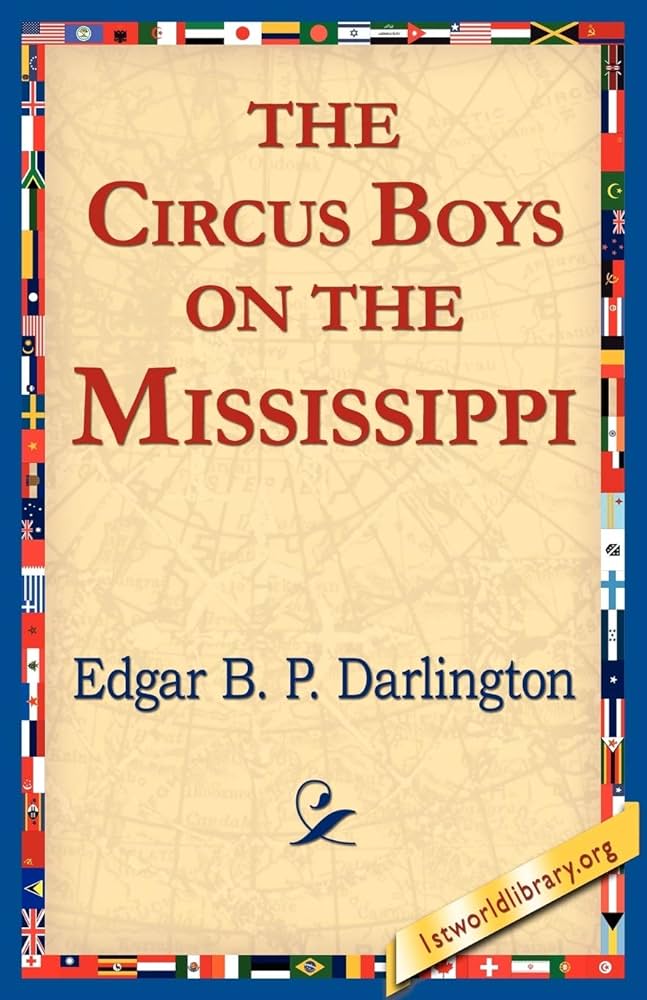Chapter XIV — The Circus Boys on the Mississippi
byChapter XIV opens on a river still humming with life as the sun dips below the horizon. The crew aboard the “Marie” and “River Queen” may have endured mishaps earlier in the day, but their spirits have rebounded with the kind of cheer only circus camaraderie can provide. Laughter fills the dining area as performers, roustabouts, and managers alike gather for their evening meal, brushing aside fatigue with jokes and hearty portions. A light-hearted exchange arises around the topic of performers taking unexpected tumbles in the ring. Teddy, never one to miss an opportunity for wordplay, delivers a quip about a horse “biting the dust,” drawing chuckles and groans in equal measure. His clever timing is met with applause and eye-rolls, his humor a natural salve for the day’s earlier stress. The scene underscores not just humor, but the bond forged by traveling, working, and living together under the ever-changing skies of the Mississippi.
Just as the meal settles into a rhythm, the good-natured teasing takes a sudden turn. Cummings, the bearded and easily flustered pilot of the “Marie,” becomes the focus of Teddy’s next gag—though not by his own choice. Taking issue with Teddy’s banter, Cummings playfully suggests the boy should be “taught a lesson.” That suggestion backfires spectacularly when Teddy leaps into action, slapping sandwiches onto Cummings’ face and reducing him to a bewildered mess of bread and indignation. The table erupts into chaos as laughter echoes through the boat. Sandwich fillings scatter, plates topple, and the once-calm dining space transforms into a stage of comic bedlam. Teddy, quick on his feet and brimming with mischief, darts through the room while Cummings chases him in sputtering frustration, sandwich crumbs trailing in his wake.
The situation teeters on the edge of disorder until Mr. Miaco, the seasoned head clown, steps in with theatrical authority. With a single exaggerated gesture and a firm word, he brings the scuffle to a halt, his performance as commanding as any ringmaster under the big top. Cummings, despite his messy state, can’t help but grin at the absurdity. Teddy, catching his breath and dusting himself off, flashes a look that says he meant no harm—just a little chaos to keep things interesting. The crowd’s laughter lingers, the mood undampened by the ruined food. This lighthearted episode cements what everyone already knows: humor, even when it goes sideways, is part of the glue that holds their world together. For the circus folk, every mishap becomes a moment, and every moment a memory.
When the noise dies down and plates are cleared, Teddy shares a quiet laugh with Phil, his closest friend and partner in countless adventures. Their bond goes beyond jokes; it’s rooted in trust and a shared dream of someday running the show themselves. Their conversation drifts from the evening’s chaos to the hard work it takes to keep a circus moving—logistics, safety, and the countless invisible roles behind the scenes. Mr. Sparling soon joins Phil, and their exchange turns more serious. Sparling, ever the thoughtful showman, recognizes the fine line his performers walk between fun and professionalism. He praises Teddy’s spirit but reminds Phil that leadership in a circus means balancing freedom with accountability. The success of a performance isn’t just about spectacle; it’s about trust, precision, and timing behind the curtain.
Teddy’s antics, while disruptive, reveal a deeper truth about life among circus families: mischief is tolerated—even encouraged—so long as it doesn’t harm the whole. His confidence reflects years of learning through action, watching, and listening, and while not every move he makes earns applause, his instincts for timing and crowd reaction are sharp. In many ways, the dinner prank becomes a rehearsal in disguise—another test of improvisation and audience response, not unlike what happens beneath the big top. Phil’s reaction, mature yet affectionate, offers a grounding force to Teddy’s wild energy, illustrating the balancing act their friendship often performs.
The evening winds down not with scolding, but with storytelling. Laughter is shared once more as the crew gathers near the railing, staring out at the moonlit river and letting the events of the day settle into memory. Tomorrow will bring new towns, new crowds, and fresh challenges, but tonight they have each other, and that is enough. In the world of traveling performers, routine is rare, but rhythm is everything. And for the Sparling circus on the Mississippi, rhythm lives not only in the performance—but also in the pulse of laughter, the flash of mischief, and the friendships that bind it all together.

